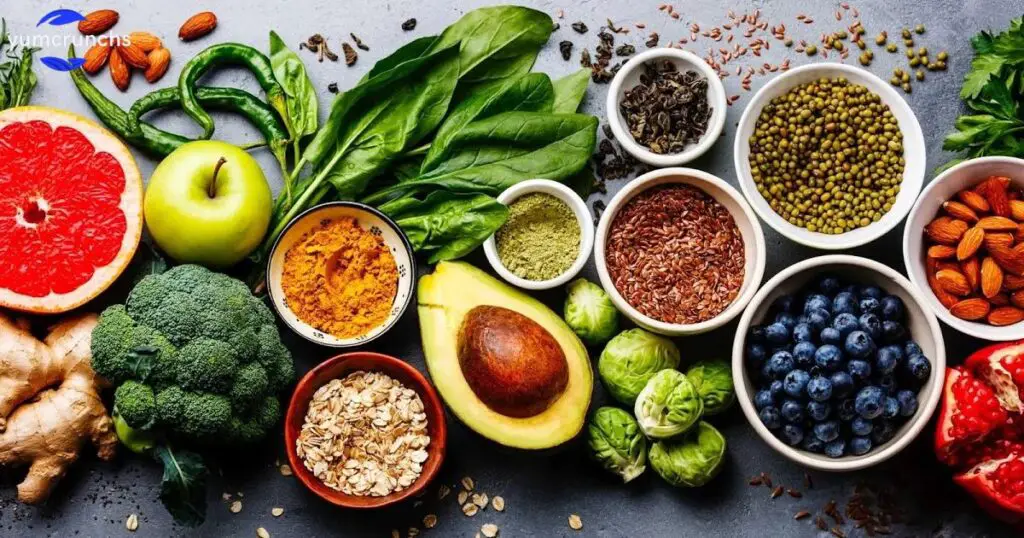It is very important to include the right food items in dinner. What you eat at night can help keep you healthy. And can cause weight gain and other health problems. Dinner can have a direct impact on your mind and body. It is not just, what you eat that matters but also the timing, which ensures your body functions properly. Dieticians call breakfast the most important meal of the day.
This is your first meal of the day after a gap of 6-8 hours after dinner. However, other meals like lunch and dinner are also important and should not be skipped. More importantly, giving up any of these foods will not help you lose weight, as is commonly believed. Ayurveda tells us to be careful about what we eat at night.
It is the last meal of the day, and it is important that it be consumed at the right time and low fat and easily digestible foods that are low in calories. This is because kapha dominates at the end of the day and the food you eat should balance kapha and not aggravate it. Continue reading to know what to eat at night.
What is Kapha dosha?
Kapha dosha is the Ayurvedic mind-body element associated with earth and water. It is slow, moist, cold, oily, heavy, smooth, and stable and symbolizes structure, lubrication, and stability in mind and body.
Foods that increase Kapha dosha

There are certain foods that you should avoid having for dinner as they create an imbalance in Kapha dosha. Junk food oily food, non-vegetarian items, frozen food, heavy-to-digest food, curd, or ice cream are some of the things you should avoid eating at night. Even if you eat them, try to eat them in less or limited quantity. Consuming them in excess at night can cause an imbalance in the body and lead to complications such as:
- gaining weight
- Cough and cold.
- feeling of vomiting
- Indigestion
- excessive salivation in the morning
- Allergies
Ultimately, wrong eating habits can lead to the formation and accumulation of toxins in the body, which can lead to many health complications.
If you are suffering from any of the above complications, now is the time to start taking proper care of yourself. Sometimes, a slight adjustment in your dietary pattern can cure or improve most of these conditions. So, the next question arises what kind of adjustments can improve your health?
Know Ayurvedic tips to eat healthy at night
Eat healthy and low-carb foods at night. This is mainly because low-carb foods are easily digested. Eating
A heavy meal at night will disturb your sleep and you may feel light-headed the next day.
Drink buttermilk instead of curd. If you are one of those people who like to eat curd, or curd at night, then it is time that you stop doing it. According to Ayurveda, curd has both sour and sweet properties and it increases Kapha dosha in the body. There is a natural predominance of phlegm in the body at night. This imbalance can lead to the development of excess mucus in the nasal passages.
Ayurveda suggests keeping dinner light as this will help you get good sleep. Additionally, our digestive system remains inactive during late hours, which means it becomes difficult for our body to digest heavy meals. According to Ayurvedic expert Dr. Vasant Lad, “Do not eat more food than you can hold in two cups of hands. Eating more expands the stomach due to which you will feel the need for extra food. Overeating also causes. Toxins in the digestive system.” Also, leave a gap of at least 2-3 hours between dinner and bedtime.
Include more protein-rich foods at night. Include pulses, pulses, and green leafy vegetables, and curry leaves in your evening meal. To keep your digestive system functioning properly, it is good to consume more protein and less carbs at night. Try including as many pulses, green leafy vegetables, curry leaves, and a small amount of ginger in your diet as possible.
Avoid salt after 7 pm. Yes, it is a bit difficult, but salt is believed to increase water retention in the body. As we have more sodium in our dinners, we put our heart and blood vessels at greater risk of overnight low blood pressure.
Salt is considered to increase water retention in the body. Therefore, it would be better if you reduce the intake of salt. Include more spices in dinner. Spices come with many health-beneficial properties apart from giving an aromatic taste to your food. Spices increase heat in your body and can help in weight loss by reducing appetite. Include more spices like cinnamon, fennel, fenugreek, and cardamom in your evening meal.
Reduce sugar intake and more honey. It is better to avoid consuming sugar with dinner and replace it with honey, such as “easily-remove-dark-spots-lemon-juice“. Consuming honey will not only enhance the taste but will also help in weight loss and help in reducing mucus. If you have a habit of drinking milk before sleeping then give preference to low-fat milk. Always boil milk before drinking it. This makes it easier to digest. You can also add a small amount of ginger or cardamom to milk before boiling it, which helps reduce the mucus-producing properties.
The rule that you should follow while eating dinner is to ensure that whatever you eat should not leave you with a feeling of heaviness in the stomach. Instead, your stomach should feel light so that you can sleep properly. So as you see from above, there is a high possibility that eating at night can make you fat. With barely enough physical activity at night, your body requires very little energy at night. Excess food, instead of being converted into energy, is stored as fat leading to obesity or weight gain. Along with ancient Ayurveda knowledge, modern science also suggests eating light food at night. Making a habit of eating early and light at night will improve your metabolism and you will feel light and healthy.
Easy to digest foods Ayurveda

In Ayurveda, the concept of easy-to-condensation foods is pivotal for maintaining balance in the body. These foods are gentle on the digestive system, abetting in proper digestion and immersion of nutrients. They include cooked vegetables like carrots, zucchini, and spinach, as well as grains like rice and quinoa. In addition, fluently digestible proteins similar to lentils and tofu are recommended. By choosing these foods, individuals can support their digestive health and overall well-being according to
Ayurvedic principles. In addition, Ayurveda suggests avoiding heavy, slithery, and exorbitantly reused foods that may overwhelm the digestive fire or Agni. Rather, concluding for lighter reflections with mild spices like gusto and cumin can help stimulate digestion without overloading the system. Incorporating easy-to-condensation foods into bone’s diet aligns with Ayurvedic principles of nurturing the body and maintaining harmony within. a guide to sleep based on your Ayurvedic type
Ayurveda what to eat at night
Ayurveda, an ancient system of drug forming in India, emphasizes the significance of maintaining balance in the body through colorful life practices, including salutary choices. When it comes to what to eat at night according to Ayurveda, it suggests light and fluently digestible reflections. Foods similar to cooked vegetables, mists, grains like rice or quinoa, and herbal teas are recommended.
These options help to promote relaxation and aid in proper digestion, allowing the body to rest further comfortably during sleep. Avoiding heavy, unctuous, and racy foods at night is advised in Ayurveda, as they can disrupt digestion and lead to discomfort during sleep. In addition, consuming caffeine and sticky treats close to bedtime should be minimized to support a peaceful night’s rest. Rather, fastening on nutritional and comforting foods helps to align with the principles of Ayurveda, promoting overall well-being and better sleep quality.
What is good health according to Ayurveda?

Good health, as per Ayurveda, is a harmonious balance of the body, mind, and spirit. According to this ancient Indian system of drugs, good health is achieved when there is a proper balance of the three doshas- Vata, Pitta, and Kapha. These doshas govern colorful functions in the body and when they are in balance, it leads to optimal health. Ayurveda emphasizes the significance of proper digestion,
Elimination of waste, and a strong vulnerable system as crucial factors of good health. Also, Ayurveda emphasizes the significance of a healthy life, which includes a balanced diet, regular exercise, acceptable sleep, and stress operation. It suggests incorporating natural remedies similar as sauces, yoga, contemplation, and detoxification practices to maintain and ameliorate overall health. By following Ayurvedic principles, individuals can strive towards achieving good health and well-being in a holistic manner.
What do we eat for dinner healthy food?
In regale, it is important to choose healthy foods that give aliment and energy without being too heavy. Conclude for spare proteins like grilled funk, fish, or tofu, paired with a plenitude of vegetables similar as broccoli, spinach, or bell peppers. Whole grains like quinoa, brown rice, or whole-wheat pasta can also be included for fiber and sustained energy. Avoid heavy gravies and fried foods, rather than concluding for lighter cuisine styles like storming, grilling, or baking.
In addition to fastening nutritional foods, it is also pivotal to watch portion sizes to avoid gluttony. Aim to fill half of your plate with vegetables, a quarter with spare protein, and the remaining quarter with whole grains or stiff vegetables. By prioritizing balanced reflections with a plenitude of veggies, spare proteins, and whole grains, you can enjoy a healthy regimen that supports your overall well-being.
Ayurveda recipes for gut health

Ayurvedic fashions for gut health offer a natural and holistic approach to maintaining digestive heartiness. Embedded in ancient Indian wisdom, these fashions concentrate on balancing the body’s doshas – Vata, Pitta, and Kapha – to promote harmony within the digestive system. Incorporating constituents like gusto, turmeric, and cumin, these fashions aim to soothe inflammation, ameliorate digestion, and support overall gut health. From assuring mists and stews to revitalizing herbal teas, Ayurvedic fashions prioritize nourishing the gut with wholesome constituents to enhance well-being.
By embracing Ayurvedic fashions for gut health, individuals can cultivate a deeper connection with their bodies and support optimal digestion. These fashions emphasize aware eating practices, encouraging individuals to savor each bite and pay attention to how different foods affect their bodies. Whether it is incorporating fiber-rich vegetables, probiotic-rich fermented foods, or digestive-friendly spices, Ayurvedic fashions empower individuals to take the visionary way toward perfecting their gut health naturally. With a focus on balance and simplicity, these fashions offer a gentle yet effective approach to nurturing the body from within.
FAQ’s
Ayurveda experience where to buy
You can explore Ayurveda experiences at local wellness centers or online platforms like Ayurvedic retreats. Additionally, reputable Ayurvedic pharmacies offer a range of authentic products and remedies for purchase.
the Ayurveda experience uk
In the UK, you can immerse yourself in Ayurveda experiences at wellness centers and spas offering traditional treatments and consultations. Online platforms also provide access to authentic Ayurvedic products and resources tailored to the UK market.
Liquid diet Ayurveda inner according to Ayurveda?
In Ayurveda, a liquid diet is personalized to balance one’s dosha (Vata, Pitta, or Kapha), incorporating nourishing soups, herbal teas, and broths to support digestive health and overall well-being.
Conclusion
Ayurveda, the ancient Indian science of healing, suggests incorporating specific healthy foods into your dinner routine for maintaining overall well-being. These foods not only nourish the body but also promote digestion and balance the doshas, or energies, within us. By embracing these dietary recommendations, you can foster good health and vitality.
Imagine savoring a dinner filled with colorful vegetables, wholesome grains, and nourishing spices, all carefully chosen to support your body’s natural rhythms. As you enjoy these nutritious meals, consider the wisdom of Ayurveda and how it guides us to nourish ourselves in harmony with nature. What other aspects of Ayurveda could you explore to enhance your well-being?

Daniel, a seasoned author with 8 years of expertise in SEO, brings a delectable blend of culinary flair and digital finesse to the food niche on his website.



